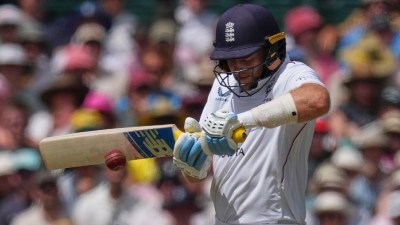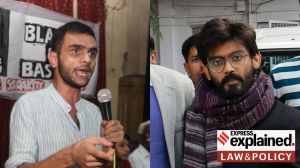How Lok Sabha put CVC one step back
It is indeed ironical that the CVC Bill passed by the Lok Sabha on February 26, meant to give effect to the Supreme Court8217;s decision to...

It is indeed ironical that the CVC Bill passed by the Lok Sabha on February 26, meant to give effect to the Supreme Court8217;s decision to strengthen bodies like the Central Vigilance Commission CVC and the Central Bureau of Investigation CBI, should include a provision which re-introduces the Single Directive which was clearly and categorically struck down by the court.
The Single Directive is a consolidated set of instructions first issued to the CBI in 1969. Directive 4.7 3, issued sometime in 1986, required the CBI to take prior sanction of the ministry or the department concerned before initiating an enquiry, registering a case for investigation, or conducting searches against, what it called, 8216;8216;decision making level officers8217;8217; i.e. of the rank of Joint Secretary and equivalent.
Apart from the constitutional and legal angles, the CBI had opposed this directive on the following grounds: in many cases, it compromises the secrecy of the raid, defeating its very purpose; in sensitive cases, sanction is not forthcoming for months, even years, thereby preventing the CBI from discharging its duty to register and probe a criminal case of corruption on the basis of credible information; collusion between corrupt politicians and dishonest bureaucrats disrupts the anti-corruption work.
In fact, a surreptitious move by a section of bureaucrats to reintroduce the directive in August 1998 in the CVC Ordinance was thwarted by the timely action of eminent lawyer Anil Dewan. The nucleolus of the present-day CBI is the outdated DSPE Act of 1946 8212; the proposal for a regular CBI Act has been hanging fire since 1970. With the able assistance of then Home Secretary L.P.Singh and SPE head D.P. Kohli, it was Lal Bahadur Shastri, who, both as Home Minister and Prime Minister, worked for the establishment of the CBI, trying to build it into an investigating agency under the Central Government with a reputation for integrity, impartiality and efficiency.
It is a sad commentary on the post-Shastri system that nothing was done to strengthen the viability and efficiency of this organisation. On the contrary, some government have caused severe damage to the organisation and its reputation.
In its December 1997 order, while striking down the Single Directive, the Supreme Court ruled that it might thwart investigation of cognisable offences. It clearly pronounced as unacceptable the proposition that the Centre could issue directives to the CBI to curtail or inhibit its jurisdiction in investigation of offences.
The court did concede the difference between executive instructions and statutory provisions in a law granting certain powers. But it also upheld the principle of equality before law, stating that all persons accused of committing the same offence had to be dealt with in the same manner in accordance with law.
In this connection, it made a distinction between cases in which there is direct evidence 8212; like acceptance of bribe or cases of disproportionate assets 8212; and cases involving decision-making where the opinion of experts could be relevant in deciding the matter. But the court held that it would be more appropriate to have such a body of experts within the infrastructure of the CBI itself, stressing that the final opinion should rest with the CBI.
Interestingly, there have been attempts to introduce the Single Directive in the past too. L.P. Singh, as Home Secretary, had opposed a proposal by the then Indian Civil and Administrative Service Association stating that the CBI should take prior permission before conducting raids against members of the service. But now, by passing the CVC Bill, our lawmakers have violated the Supreme Court order and the provisions of the Bill are liable to be quashed if challenged in the apex court.
The writer is a former joint director of the CBI
- 01
- 02
- 03
- 04
- 05































